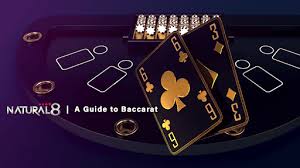Introduction:
먹튀사이트 has come a long way since the days of Pong and Space Invaders. What was once a simple form of entertainment has transformed into a multi-billion dollar industry that encompasses a diverse range of genres, platforms, and technologies. This article explores the evolution of gaming, from its humble beginnings to the cutting-edge experiences of the present day.
The Birth of Gaming:
The origins of gaming can be traced back to the early days of the computer age. In the 1950s and 1960s, scientists and engineers experimented with basic games on mainframe computers. These early games were simple by today’s standards, often text-based or involving rudimentary graphics. However, they laid the groundwork for the interactive entertainment we know and love today.
Arcade Era:
The 1970s marked the birth of the arcade era, with games like Pong and Space Invaders captivating players in public spaces. Arcades became social hubs where players could gather, compete, and share their love for gaming. The release of the groundbreaking game Pac-Man in 1980 further solidified the cultural impact of arcades.
Home Consoles:
The 1980s saw the rise of home gaming consoles, bringing the arcade experience into living rooms worldwide. The Nintendo Entertainment System (NES) and Sega Master System became iconic symbols of this era, introducing beloved characters like Mario and Sonic. The gaming industry experienced a boom as consoles evolved, offering improved graphics, sound, and gameplay.
The Rise of PC Gaming:
While consoles dominated the living room, personal computers were quietly becoming a force in the gaming world. The 1990s saw the emergence of PC gaming as a viable and popular platform, with titles like Doom and Quake pushing the boundaries of what was possible in terms of graphics and multiplayer experiences. The modding community also flourished during this period, adding a new layer of creativity to gaming.
3D Graphics and CD-ROMs:
The late 1990s brought a significant leap in gaming technology with the advent of 3D graphics and the widespread use of CD-ROMs. Games like Tomb Raider and Final Fantasy VII showcased cinematic storytelling and immersive 3D environments. The gaming industry was maturing, attracting a broader audience with diverse interests and preferences.
The New Millennium:
The 2000s witnessed the rise of online gaming, connecting players around the globe. Multiplayer experiences became more sophisticated with the emergence of MMORPGs (Massively Multiplayer Online Role-Playing Games) like World of Warcraft. Additionally, advancements in hardware allowed for more realistic graphics and physics, enhancing the overall gaming experience.
Mobile Gaming Revolution:
The introduction of smartphones in the late 2000s sparked a new era of gaming accessibility. Mobile games, ranging from casual titles like Angry Birds to complex strategy games like Clash of Clans, reached a massive audience. The simplicity and convenience of mobile gaming made it a mainstream phenomenon, transcending age and demographic barriers.
Virtual Reality and Augmented Reality:
In recent years, gaming has entered the realms of virtual reality (VR) and augmented reality (AR). VR headsets like the Oculus Rift and PlayStation VR offer immersive experiences, while AR games like Pokémon GO blend the virtual and real worlds. These technologies have the potential to redefine how we perceive and interact with digital entertainment.
Conclusion:
The evolution of gaming is a testament to human innovation and the ever-advancing capabilities of technology. From the early days of pixelated sprites to the immersive worlds of virtual reality, gaming has continually pushed the boundaries of what is possible. As we look toward the future, it’s exciting to imagine how emerging technologies will shape the next chapter in the ever-evolving story of gaming. Whether you’re a casual player or a dedicated enthusiast, there’s no denying the profound impact that gaming has had on entertainment and culture as a whole.

